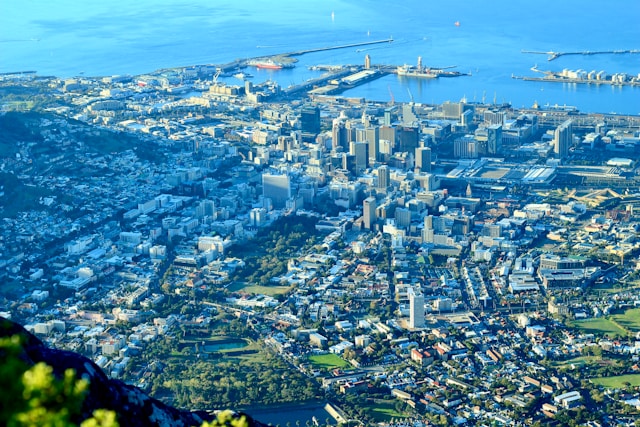News
Addressing Africa’s Infrastructure Deficit

Infrastructure development is a key driver for progress across the African continent and plays a pivotal role in achieving productivity and sustainable economic growth. It contributes significantly to human development, poverty reduction, and the attainment of the Sustainable Development Goals (SDGs).
To address the infrastructure deficit, it’s essential to understand what infrastructure entails: basic social amenities necessary for successful human existence, including secure energy, efficient transport, reliable communication systems, resilient sanitation, and affordable housing. Africa, when compared to other continents unfortunately has record-breaking deficits. Despite significant progress in some regions, most of Africa lags the rest of the world in coverage of key infrastructure, including energy, housing, road and rail transportation, water infrastructure and many more.
For instance, The African Development Bank states that Africa invests only 4% of its GDP in infrastructure, compared with 14% in China, and bridging the infrastructure gap could increase GDP growth by an estimated 2 percentage points a year.
More instances include cases where housing, when available, is simply not affordable for the vast majority of Africans, electricity coverage ranges from just 65% in urban areas, and 28% in rural areas, transport systems are nothing to write home about with roads, railways, ports and even airports suffering from outdated infrastructure, inadequate water and sanitation sits at a large centre, costing the continent 5% of its GDP at an average.
Africa’s vast infrastructure deficit is a constraint on its economic growth, which is a known pathway to increased poverty, and environmental degradation. The causes of such vast deficits include but are not limited to factors such as, rapid urbanization, historical under investments, and in most cases, corruption and systemic inefficiencies. Most of the listed causes above drive straight down to one major cause that always breaks the camel’s back; limited funding!
The Africa Development Bank estimates that Africa’s infrastructure needs between $130 to $170 billion annually, with a financing gap of $68 to $108 billion.
It is important to note that this discourse is not new to the ears of Africans, and countries that took on the challenge with utmost priority have recorded a certain degree of success. Success stories, such as Rwanda’s infrastructure investments, Kenya’s Standard Gauge Railway (SGR), and Morocco’s investments in renewable energy, reducing dependence on fossil fuels, among a few others, demonstrate the potential for progress. However, limited funding remains a significant constraint. For example, the complete success of Kenya’s SGR is moving at a slow pace, due to billions of loans yet to be serviced by the government. This is largely because the bulk of the job is almost always left for African governments and a few organizations like the Africa Development Bank that sponsor some initiatives.
Africa’s infrastructure deficit exposes the funding gap that needs urgent bridging. To bridge the funding gap, involving the private sector in financing projects and reducing failure rates is crucial. Private sector investment accounted for 40% of total infrastructure investment in Africa in 2020. The bank also notes that Public-Private Partnerships (PPPs) can help reduce the financial burden on governments as they mobilize funding and expertise from the private sector and improve infrastructure quality.
However, it is worth mentioning that the private sector’s involvement is often hindered by risks associated with infrastructural projects such as regulatory and operational risks. To address this, governments can create an enabling environment for private sector investment by helping to mitigate political, currency, and regulatory risks, and by increasing the deal flow of bankable projects.
Other viable methods of addressing Africa’s Infrastructure include regional integration that strengthens initiatives like the African Continental Free Trade Area (AfCFTA).
Addressing and closing Africa’s infrastructure deficit will take time. However, conversion of strategies into efficient and effective actions can help improve progress rates and create opportunities for new projects. With determination and cooperation, Africa can overcome its infrastructure challenges and unlock its growth potentials.













